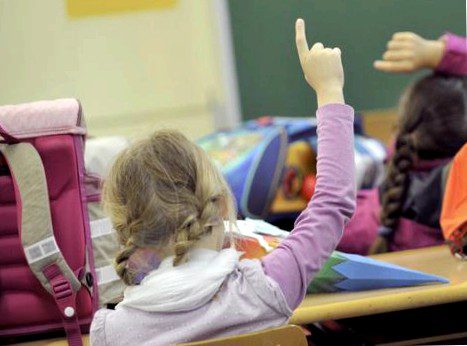German elementary school students do well in reading and math

Nevertheless, the new IGLU and TIMSS studies presented in berlin on tuesday also show the weaknesses of german elementary school: educational success is still extremely dependent on social background. There are not enough top students in germany in reading, math and science. And as many as one in five children are considered "at-risk" learners whose performance lags behind.
School researcher wilfried bos said: "germany has been able to maintain its high position with its overall performance – and this under more difficult conditions."The proportion of migrant children in german elementary schools has risen to around 27 percent – a quarter more than ten years ago. Overall, the federal republic of germany is on a par with the major OECD industrialized nations.
However, the german IGLU and TIMSS leader conceded that there are also significant proportions of elementary school students who are so poor in all three areas that they are likely to have considerable problems in their further schooling from grade five onwards. In reading, 15.4 percent of all ten-year-olds are ahead, in mathematics 19.3 percent and in science as many as 22 percent.
In contrast, only 9.5 percent of ten-year-olds in germany are among the top students in the most important learning skills of reading and text comprehension. In england, by contrast, the figure is 18.3 percent, and in the USA, 17.3 percent. Bos: "this is a cause for concern. We are wasting our talents."There are even fewer top students in germany in mathematics. Only 5.2 percent of ten-year-olds reach the highest achievement level there. Bos: "we are not making optimal use of the upward mobility gap."
At the same time, the scientist also dispelled prejudices. According to the study, more and more children in germany like to read and read often – despite all the warnings about a dwindling reading culture due to television and the internet. Only 11 percent never read outside of school. Bos: "our children read a lot, and they like to read. This is a gross achievement by our elementary schools and also by our parental homes."
Ten-year-olds from hong kong once again lead the way in reading. They have a learning advantage of around three quarters of a school year over their peers in germany. The knowledge gap between schoolchildren from singapore, korea or hong kong and those from germany in mathematics is even more pronounced. Asians are almost two years ahead of their peers in learning. Bos spoke of a "different learning culture in asia.
The new IGLU survey also debunks prejudices about education in families with a migrant background. Bos: "just 4 percent of our migrants never speak german at home. It’s hard to talk about a parallel society here."Overall, migrants are the educational winners in the current elementary school test. At the same time, the demand for migrants in the federal republic of germany is worse than the average for other industrialized nations.
In german elementary schools, too, educational success is still dependent on social origin. "A child of a professor or a chief physician has 4.7 times the chance of being recommended to a grammar school compared to a skilled worker," bos explained. Fourth-graders whose parents have more than 100 books at home – which is considered a status criterion according to the IGLU – are on average one year ahead of their peers from other families in terms of their learning performance.
The president of the conference of education ministers (KMK), hamburg’s school senator ties rabe (SPD), referred to the reform efforts made by the states in recent years. Language requirements are to be expanded everywhere. Nevertheless, it must now be "readjusted" and teacher training must also be strengthened. Rabe also spoke out in favor of more all-day schools. Teaching could be improved in these areas as well.
In view of the mixed results, the union for education and science (GEW) spoke of soft talk. "For some years now, there have been clear signs that the positive development of elementary schools has been disrupted by a large number of poorly prepared reform measures," said GEW vice president marianne demmer. "With their testeritis and the compulsory comparative examinations, the ministers of education have backed the wrong horse. "Investments must be made in teacher training and in individual support measures for weaker pupils.
RELATED POSTS

Permanent crisis threatens german shipping industry With the permanent withdrawal of important ship banks, the charter industry is practically being unplugged. The entire maritime sector in germany is in… |
So already becomes the bad bruckenauer middle school No word from the city council on the planned medical center in georgi park. In one of the next meetings the subject will be presented to the public ,… |

Consequences of colonialism are still traceable Weibenbrunn – how is it that people can meet each other , father hermann schulz was pleased when he once again came to weibenbrunn in the district of… |
In coburg, twelve chestnut trees must be replaced Since 1987, twelve chestnut trees have been standing in the gustav-hirschfeld-ring and are thus still relatively young. Actually they had at least 50… |
